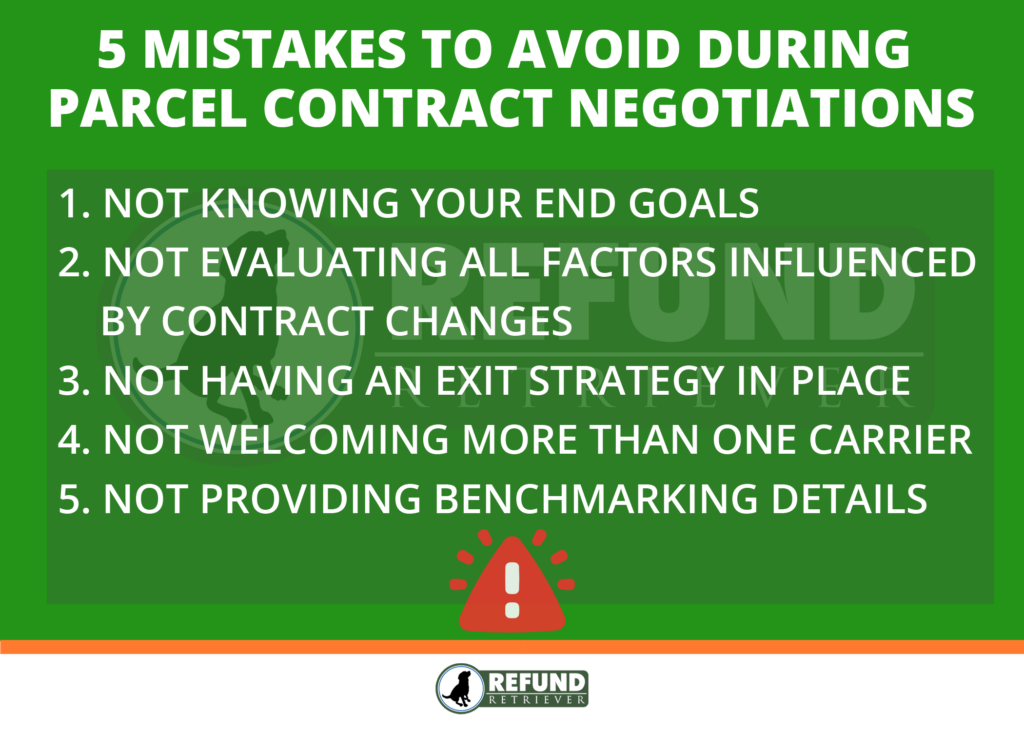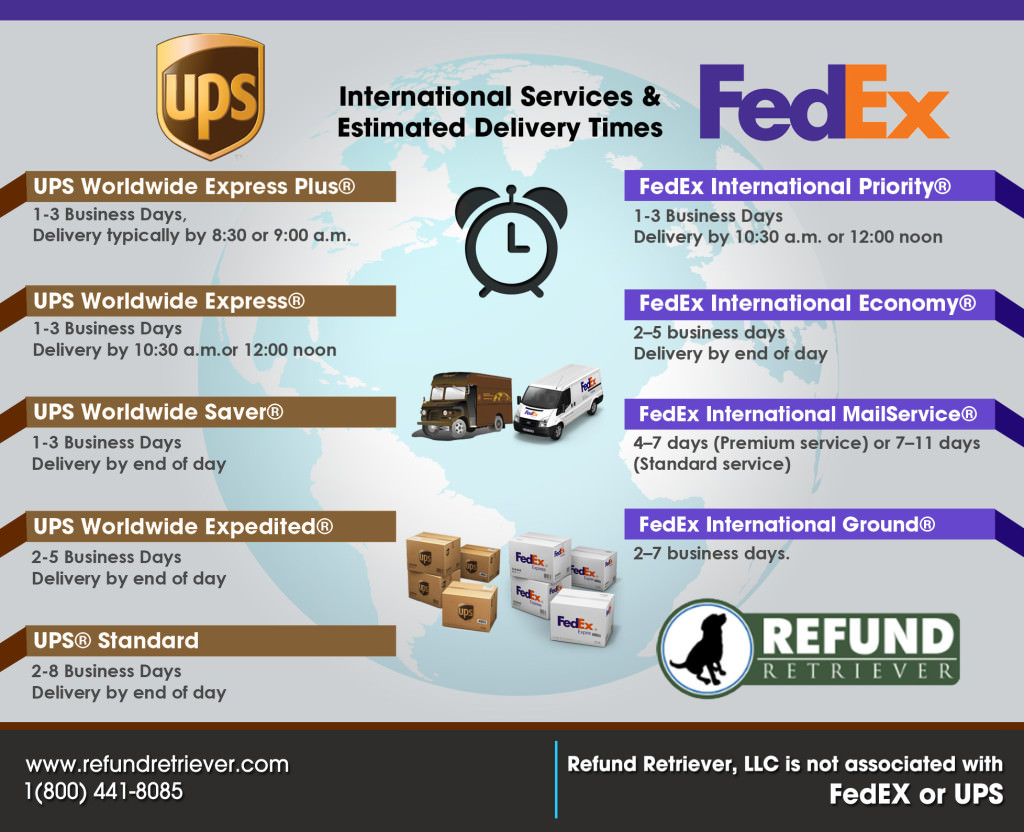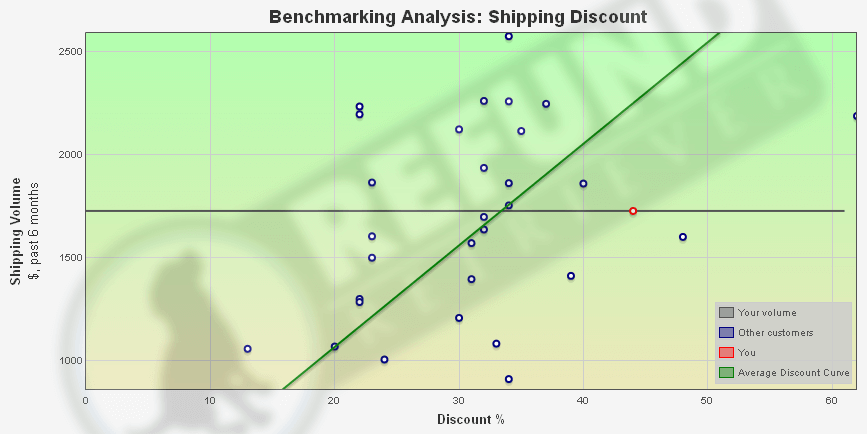FedEx and UPS made some significant changes to their rates and contracts for 2024, yet many businesses have yet to either know or understand these changes. For this reason – and many others – companies must update their parcel carrier contracts and gain more clarity about what impacts their shipping efforts. Unfortunately, however, these efforts don’t always top to-do lists – making it easier for carriers to increase their profits while shippers often spend more than they should.
Estimated reading time: 5 minutes
Table of contents
To help avoid the potential shortcomings of your existing carrier contracts, re-negotiate – or even negotiate for the first time – your parcel contracts to increase your shipping efficiency while decreasing your shipping overhead. To help, consider the five mistakes below you will want to avoid during parcel contract negotiations.
Mistake #1: Not Knowing Your End Goals
Regarding shipping, what do you want to gain other than your deliveries arriving safely from point A to point Z? To avoid surcharges and eliminate excess carrier fees, you’re in good company. Savvy business owners looking to streamline their operations are always aware of how much money they’re spending – which is why the details of your carrier contracts are so important.
Knowing your business’s data is critical when aiming to reach these goals. You can gain vital data through parcel auditing and shipping analytics to unveil insight into your shipping efficiencies, shortcomings, and overhead. Collectively, these data touchpoints can help lead you in your contract negotiation process to reach end goals with your company’s best interests at the top of your mind.

Mistake #2: Not Evaluating All Factors Influenced by Contract Changes
Making changes is one thing… reacting to the domino effect that may follow is another.
When you negotiate your carrier contracts, consider all the factors that will be influenced when any changes are made. Carrier contract negotiations affect many things, from transit times to external business partners, cost calculations, and other variables. Remember these factors as you negotiate your contracts to avoid unexpected errors, frustrations, customer disappointment, and more.
Mistake #3: Not Having an Exit Strategy in Place
As the saying goes, all good things must come to an end. And when it comes to parcel contract negotiations, this is no exception… even if you think your existing contract is the best it could ever be.
FedEx and UPS surprise shippers every year with new rates, surcharges, and other expenses that may or may not be favorable to your shipping efforts. Due to this, shippers need to have an exit strategy identified within their contracts just in case something happens where they need to terminate or change the contract. Looking ahead to the end – or at least an ending that needs some adjustment – can help your company better prepare for long-term shipping success.
Mistake #4: Not Welcoming More Than One Carrier
Let’s face it – it’s less time-intensive to negotiate one carrier contract than it is two or three. Yet this approach doesn’t do you any favors when capturing the best shipping rates for your various shipping needs. As a result, it’s essential to consider how multiple carrier contracts can benefit your business.

Incorporating a multi-carrier strategy into your shipping efforts can deliver various benefits – including enhanced transit time, increased pick-up and delivery locations, and more favorable rates. Additionally, you welcome the opportunity to provide your customers with their preference of carriers – something not to overlook the value of. To help ease this often time-intensive– and always complicated – task, consider how trusting experts can help you. Refund Retriever offers this service, eliminating the need to add one more thing to your to-do list while also delivering on your company’s goals of reaching the best contract terms possible for your unique business. Explore more here.
Mistake #5: Not Providing Benchmarking Details
Benchmarking refers to providing data points from other companies for comparative purposes. And when it comes to contract negotiations, there is no uncertainty about the value that benchmarking can provide during a negotiation process.

When armed with data and hard facts – including comparable rates, transit times, surcharge details, and more – from one carrier to another, you will be better equipped to negotiate fairly yet firmly. Not having these details, however, can be a costly mistake that can lead you to less than preferred contract terms. Data benchmarks will reveal shipping intelligence and make a FedEx agreement negotiation simple.
Parcel Contract Negotiations
The fine print of carrier contracts is complex, yet the details of your money spent shipping can be even more complicated if not routinely evaluated and understood. Make parcel contract negotiations top your to-do list to help avoid paying more than you should. Discover more here, or reach out to Refund Retriever at brian@refund-retriever.com now.

